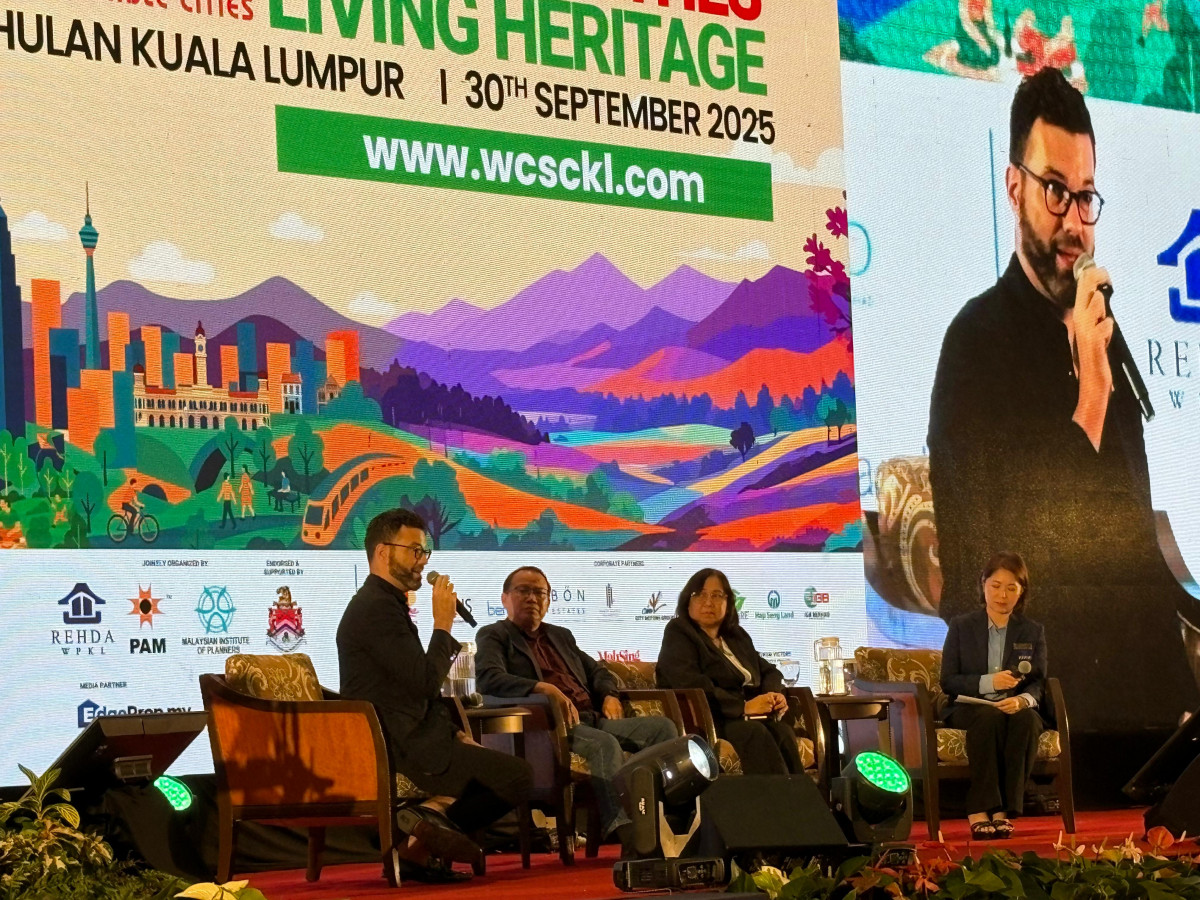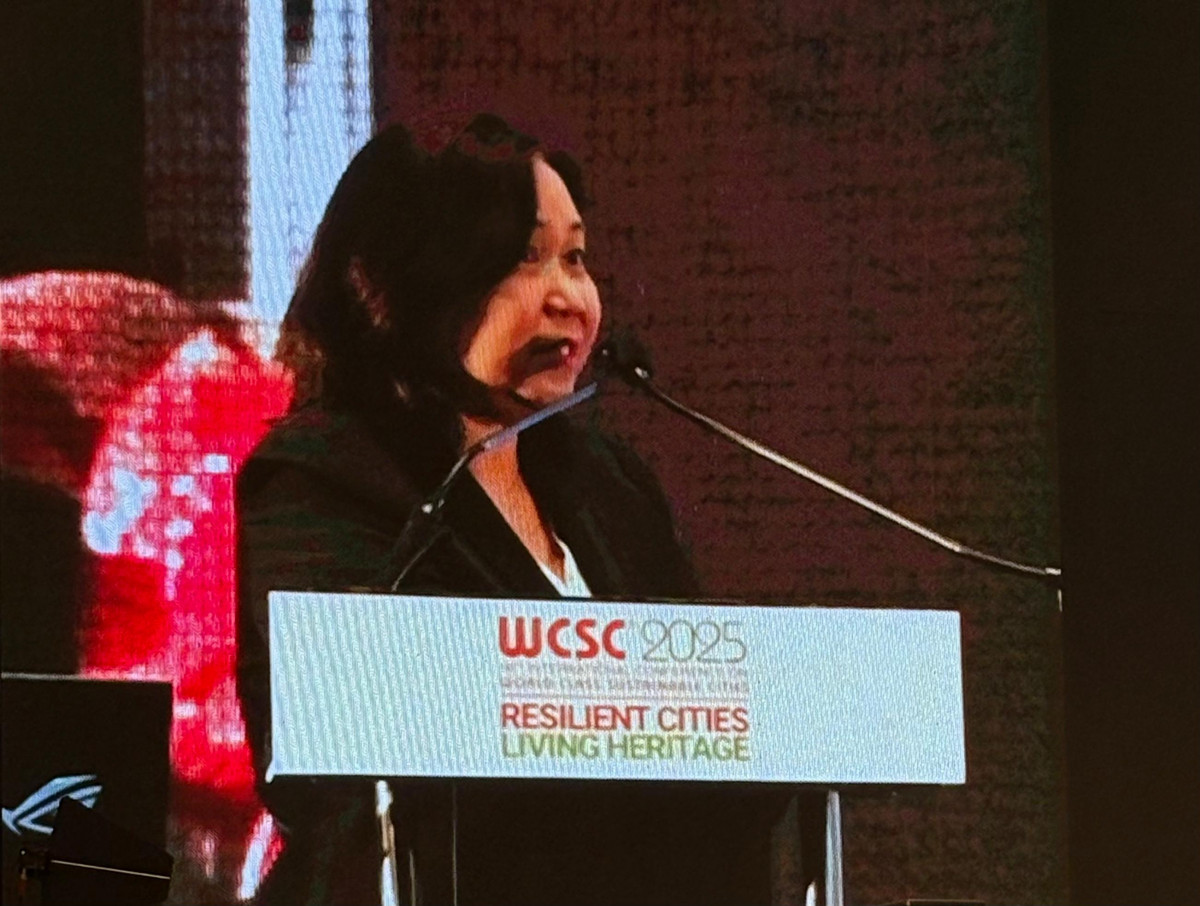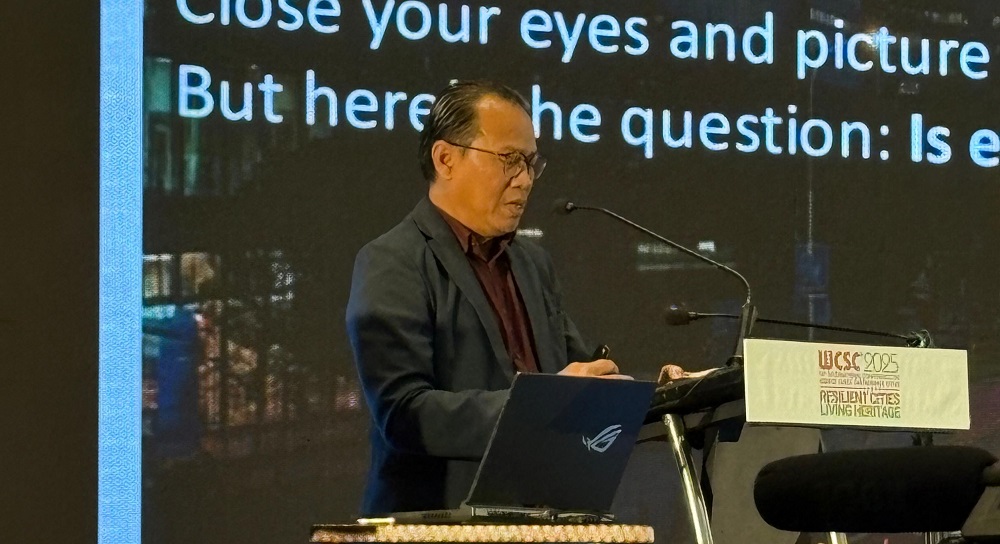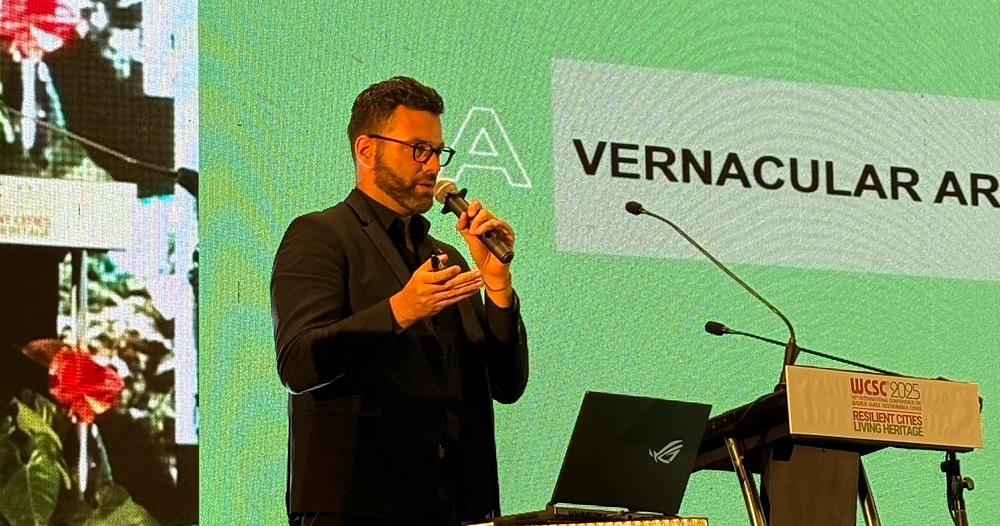
- Technology, when applied thoughtfully, can enhance human experiences by reimagining heritage, improving accessibility, and enriching cultural expression.
KUALA LUMPUR (Oct 1): Past urban planning decisions often relied heavily on instinct and experience, but today’s context requires striking a balance between data-driven insights and human judgement.
Technology’s growing role in shaping urban planning took centre stage at the 16th International Conference on World Class Sustainable Cities (WCSC) 2025 in a session themed “Smart and Inclusive Technologies for Regenerative Urban Futures”, moderated by Real Estate and Housing Developers’ Association (Rehda) Malaysia executive director Carrie Fong here on Tuesday.
Read also
WCSC 2025 to tackle urban identity, climate and smart tech
WCSC 2025: RM700m allocated to revitalise seven national landmarks, says Nga
WCSC 2025: Culture key to thriving cities, not just socially, but economically
WCSC 2025: Plant trees, save cities

The panel explored how technology is increasingly shaping urban planning, from monitoring consumer behaviour to anticipating future trends and climate change.
Technology, when applied thoughtfully, can enhance human experiences by reimagining heritage, improving accessibility, and enriching cultural expression, said the Philippines’ University of Santo Tomas, College of Architecture faculty member Dr Lorelei DC De Viana.
Internet of Things (IoT) project management company FAVORIOT Sdn Bhd CEO Dr Mazlan Abbas highlighted the critical role of storytelling in data interpretation. He explained that while technologies such as the IoT generate vast amounts of data, domain experts are needed to contextualise and translate findings into meaningful insights for urban planning.

Architectural firm VERITAS Design Group senior associate architect Dr Miguel A Robles noted that while professionals contribute technical expertise, people themselves are the key drivers of social regeneration. He argued that cultural identity and human behaviour play an essential role in ensuring cities remain unique, rather than adopting uniform models.
He added the importance of aligning proposals with developers’ bottom lines, while also creating positive examples that could inspire replication elsewhere. He stressed that balancing financial priorities with innovative approaches could encourage more sustainable practices in the long term.
The discussion also examined challenges in integrating technology into heritage regeneration, including high costs, funding constraints, and the difficulty of adapting historic structures without compromising their integrity.

Speakers cautioned against over-reliance on high-tech solutions, suggesting that simpler and more adaptable approaches may often prove more sustainable.
On inclusivity, panellists underscored that smart technologies should be accessible to all communities, not only the affluent. This includes ensuring access to basic utilities such as electricity in rural areas and promoting equitable energy distribution.
Lorelei also stressed the importance of ensuring inclusivity, particularly for those less familiar with digital tools, and called on younger generations to assist non-digital natives in adapting.
On heritage and technology, Lorelei said how tech-enabled placemaking supports heritage-led regeneration through restoration projects, archival mapping, and youth-led initiatives, while stressing the need to preserve authenticity and community identity.
Miguel said climate-responsive design requires adapting vernacular wisdom into modern practice, from passive cooling strategies to walkable cities. He argued that sustainable forms must operate at both building and city scales to foster healthier communities.
Meanwhile, Mazlan called for Malaysia to pursue “regenerative cities” rather than copying foreign smart city models. He emphasised the use of data and sensors to improve energy, water, waste, and mobility, stressing that long-term success depends on strong governance, policy alignment, partnerships and citizen engagement.
The ethical use of data emerged as another key theme. Speakers pointed out that data collection through sensors and cameras raises privacy concerns, stressing that users must be aware of how their information is being collected, stored, and applied.
WCSC 2025, themed “Resilient Cities, Living Heritage”, is organised by the Malaysian Institute of Planners (MIP), Real Estate and Housing Developers’ Association (Rehda) Malaysia and the Malaysian Institute of Architects (PAM), in collaboration with Kuala Lumpur City Hall (DBKL) and EdgeProp as media partner.
As Penang girds itself towards the last lap of its Penang2030 vision, check out how the residential segment is keeping pace in EdgeProp’s special report: PENANG Investing Towards 2030.






